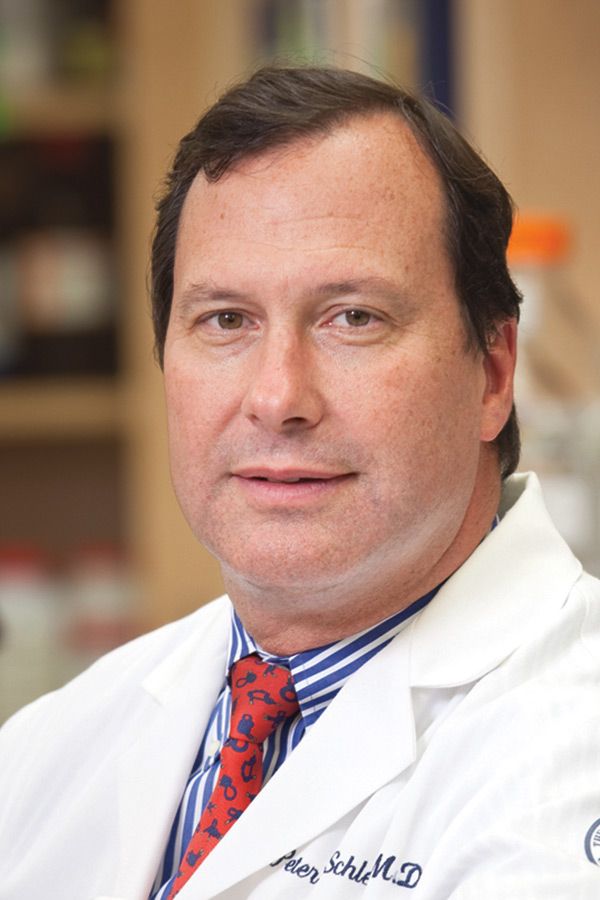As part of the ESHRE (European Society for Reproductive Medicine) annual meeting in 2020 (5-8 July 2020), Dr. Schlegel gave a presentation for the “ASRM Exchange Session – Controversies in ART”
His presentation covered a number of different patient factors and conditions that can affect the results of Assisted Reproductive Technologies (ART) including IVF and ICSI. He discussed in detail patient lifestyle factors, especially diet and obesity, as well as abstinence before providing a semen specimen and the role that sperm DNA damage (also referred to as sperm DNA fragmentation, measured by TUNEL or SCSA tests) can play in adversely affecting IVF results. Abnormal sperm DNA fragmentation can clearly affect the chance of pregnancy, even when sperm appear normal on semen analysis. Some of the questions (and answers provided by Dr. Schlegel) appear below.
Is the male gamete relevant in ART? - Peter N. Schlegel (U.S.A.)
Q: What do you suggest for patients with high DNA fragmentation in semen?
A: Counsel the couple regarding the effect of high DNA fragmentation on results of natural attempts at conception as well as attempts with ART. Evaluation of the man for conditions that may cause high DNA fragmentation, including but not limited to infections, varicoceles, SSRI medications, prior surgery or conditions that affect sperm transport. Repeat testing for men using shorter abstinence period may be considered as well.
Q: What is your clinical recommendation for those mans in IVF treatment with higher age and overweight?
A: Men with higher age should be counselled regarding the relative (but not absolute) risk of autism, schizophrenia and other genetic anomalies that are of increased risk for children, including autosomal dominant conditions (e.g., achondroplasia). For overweight men, counsel to avoid gaining additional weight, discuss management to limit weight with diet (avoiding fats, red meats) and the benefits of moderate exercise.
Q: What is your opinion about clinical routine testing for sperm DNA damage? Should it be included in first place in the couple clinical workout?
A: Since sperm DNA abnormalities will not necessarily change initial management of the couple, testing can be deferred until ART has been attempted, unless a treatable/changeable condition is present (e.g., SSRI use) that could adversely affect sperm DNA integrity.
Q: Do you propose fresh sperm retrieval or freezing sperm before IVF in pts with increased DNA fragmentation
A: For men with abnormal sperm DNA fragmentation and quantitatively normal spermatogenesis (normal sperm concentration), both fresh and frozen testicular sperm are reasonable options for IVF. One potential benefit of using frozen sperm is the ability to test those sperm for DNA fragmentation to assure that the use of testicular sperm “fixed” the problem of abnormal ejaculated sperm DNA. Testicular sperm DNA integrity is of far better quality for about 95% of men with abnormal ejaculated sperm DNA fragmentation, reflecting the fact that sperm fragmentation usually occurs during sperm transport, i.e., after sperm have left the testis.
Q: Do you have experience in the use of consecutive ejaculates?
A: Yes. We commonly use consecutive ejaculates (i.e., multiple semen samples on the same day), with severely oligospermic men typically having sperm in the 3rd or 4th ejaculate on one day, and latter semen samples having the best sperm DNA quality, in most cases.
Q: In case of DNA fragmentation, you perform annexing V columns?
A: We have not routinely used any sperm separation approaches for samples with abnormal sperm DNA fragmentation, as it is not clear that processing changes the reproductive outcome. Even though processed semen samples have better DNA fragmentation scores, the neat semen sperm DNA damage likely reflects a subclinical level of damage for all sperm in the ejaculate. Therefore, selection may not abrogate the adverse effect. More data are needed.
Q: If you are doing testicular sperm for increased DNA fragmentation does a fresh or a frozen specimen make a difference
A: We have not seen a difference in ART results using testicular sperm from men with quantitatively normal spermatogenesis. If sperm production is low, fresh sperm may be preferred to avoid the risk of sperm not surviving freeze-thaw.
Q: The patients with retroejaculation as we know it takes a long time to prepare the semen sample does this will affect the outcome of fertilisation
A: As long as motile sperm are recovered, fertilisation appears to be effective using processed retrograde ejaculates. Of note, more rapid processing allows better collection of motile sperm. In addition, retrograde ejaculates may be at increased risk of sperm DNA fragmentation, as the condition is defective sperm transport.
Q: How, exactly, do you ask to your patient to do the abstinence to the ivf?
A: Although standards for semen analysis have recommended 2-5 days of abstinence, we now routinely recommend <1 day of abstinence.
Q: Where are we with CASA now? A lot has been silent on it for a while now.
A: CASA is still an effective tool to quantitate sperm motility, and it can be used for morphologic analysis as well. However, CASA does not provide critical information for clinical management of most patients.
- Presentation


